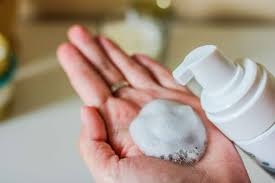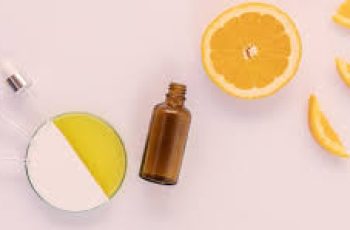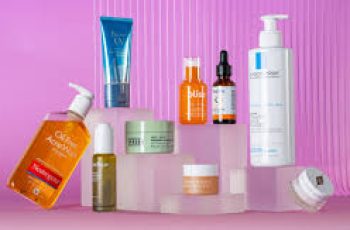
Best Cleanser for Acne: How to Choose the Right One for Your Baumann Skin Type
Acne is frustrating, but choosing the right cleanser can make a huge difference in managing it.
The best acne cleanser depends largely on your Baumann Skin Type, which considers how oily or dry your skin is and how strong your skin barrier functions.
Many people unknowingly use the wrong cleansers for their acne, which can worsen breakouts or irritate skin.
Over 80% of new patients I see have been using unsuitable products before switching to cleansers that fit their skin type. This switch improves tolerance to the rest of their acne regimen and speeds up results.
Let’s dive into how to find the best face wash for acne-prone skin, whether you should use benzoyl peroxide, salicylic acid, or probiotic cleansers, and what to look for based on your skin’s sensitivity and oiliness.
Why Your Baumann Skin Type Matters for Acne Cleansers
The Baumann Skin Type categorizes skin based on oil production and skin barrier strength. It helps personalize acne treatment because skin reacts differently depending on these factors.
For example, someone with oily, resilient skin may tolerate benzoyl peroxide cleansers well. In contrast, someone with dry, sensitive skin needs gentler formulas.
Understanding your Baumann Skin Type helps you choose acne cleansers that unclog pores, reduce pimples, and maintain skin barrier health without over-drying or irritating your skin.
Best Acne Face Wash for Sensitive Skin: Four Types of Sensitive Skin
Sensitive skin comes in four types, and you may even have more than one, which makes picking the right cleanser tricky. Knowing your Baumann Skin Type helps narrow down your options.
Here are general guidelines for acne cleansers based on your skin’s sensitivity and other symptoms:
1. Pimples and Clogged Pores Without Redness or Stinging
If you have acne but no redness, stinging, or allergies, look for cleansers with hydroxy acids (AHAs or BHAs). The choice depends on whether your skin is oily or dry.
For oily skin with no irritation, a benzoyl peroxide cleanser once a day may work well to reduce acne-causing bacteria.
2. Pimples and Clogged Pores Plus Facial Redness or Stinging
If your acne is accompanied by redness or stinging, avoid benzoyl peroxide. Instead, choose soothing cleansers with anti-inflammatory ingredients.
Salicylic acid cleansers can be good for oily, sensitive skin but may be too drying for dry skin types.
3. Pimples and Clogged Pores With a History of Skin Rashes and Allergies
For those with acne and frequent allergies or rashes from skincare products, hypoallergenic cleansers are best. Products from brands like VMV Hypoallergenics are designed for allergic, acne-prone skin.
These formulas minimize irritants and help calm reactive skin while cleansing effectively.
Hydroxy Acid Cleansers for Acne: What Are They and Why Are They Important?
Both oily and dry skin types benefit from using low pH cleansers in the morning. The bacteria that cause acne do not thrive in a low pH environment.
Using a low pH cleanser helps reduce acne-causing bacteria levels, which supports clearer skin.
Hydroxy acids gently exfoliate and unclog pores, improving texture and reducing breakouts.
Acne Cleansers for Dry Skin: Gentle Yet Effective
Dry skin needs acne cleansers that contain humectant hydroxy acids to moisturize while fighting acne.
Examples include:
Glycolic acid, Lactic acid, Phytic acid, Mandelic acid
Polyhydroxy acids (PHAs) like gluconolactone
These acids exfoliate gently, remove dead skin, and hydrate without over-drying.
Acne Cleansers for Oily Skin: Stronger Formulas That Work
Oily skin tolerates acne face washes better, especially those containing salicylic acid, a beta hydroxy acid that penetrates pores and reduces oiliness.
Bergamot oil is a popular ingredient in cleansers for oily skin. It has antimicrobial properties and doesn’t clog pores because it lacks lipids.
One notable product is La Roche-Posay Pigmentclar Brightening Deep Cleanser, which offers a deep yet gentle cleanse for oily, acne-prone skin.
Benzoyl Peroxide Cleansers for Acne: Powerful but Must Be Used Carefully
Benzoyl peroxide kills acne-causing bacteria but can be harsh. It’s typically best for oily, resistant skin types.
Usually, benzoyl peroxide cleansers should be used once a day to avoid irritation.
They are especially effective as body washes to treat stubborn acne on the back and buttocks.
Popular benzoyl peroxide cleansers include:
PanOxyl Acne Foaming Wash
Neutrogena Rapid Clear Stubborn Acne Cleanser
Prebiotic and Probiotic Cleansers: What You Need to Know
Research is ongoing about the best bacteria for healthy skin and acne control. Currently, there’s not enough evidence to recommend prebiotic or probiotic cleansers for treating acne.
With so many effective options available, I generally advise against relying on these for acne treatment at this time.
How to Find the Best Acne Cleanser for Your Baumann Skin Type
Many acne sufferers may need two different cleansers—one for the morning and one for the evening—to fit their skin’s changing needs throughout the day.
Your cleanser choice affects the performance of other acne treatments. For example, low pH cleansers can boost retinoid absorption, which means you may need a lower retinoid strength.
Knowing your Baumann Skin Type helps you select cleansers that work harmoniously with other products, reducing side effects and increasing treatment success.
Tips for Building an Effective Acne Skincare Routine
Start with gentle cleansing. Choose a cleanser tailored to your skin’s oiliness and sensitivity level. Avoid over-cleansing, which can strip oils and worsen acne.
Use treatment products as advised. Follow the cleanser with acne treatments like topical retinoids, benzoyl peroxide, or antibiotics prescribed by your dermatologist.
Moisturize daily. Even oily skin needs hydration to keep the skin barrier strong. Look for non-comedogenic moisturizers suited for acne-prone skin.
Apply sunscreen. Many acne treatments increase sun sensitivity. Use a broad-spectrum, oil-free sunscreen daily to protect your skin.
Be patient and consistent. Acne treatments can take weeks to show improvement. Sticking with your routine is crucial for lasting results.
When to See a Dermatologist
If over-the-counter cleansers and treatments don’t help, or your acne worsens, seek advice from a dermatologist.
A professional can identify your exact skin type, prescribe medications, and guide you to the right cleansers and products.
They may recommend combining topical and oral treatments for stubborn acne or offer advanced procedures like chemical peels or laser therapy.
Final Thoughts
Choosing the best cleanser for acne is more complex than picking any product labeled “acne wash.” It depends on your skin’s oil level, sensitivity, and the strength of your skin barrier.
Using the wrong cleanser can increase irritation and prolong acne. Using the right one can speed healing and improve your skin’s health dramatically.
Find your Baumann Skin Type to get personalized advice and a skincare routine tailored for your acne.
With the right cleanser and care plan, clearer, healthier skin is within reach.


